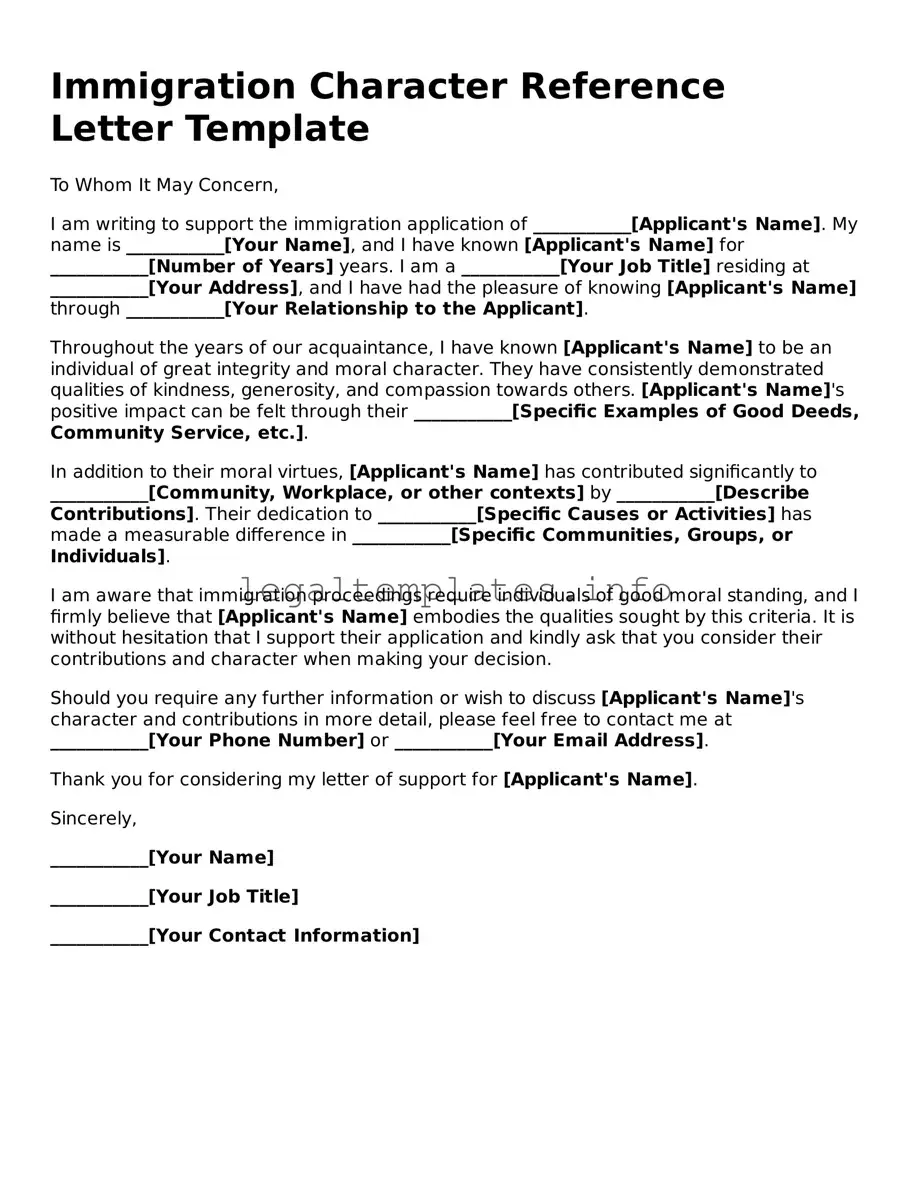Fillable Character Reference Letter for Immigration Document
The Character Reference Letter for Immigration serves as a pivotal document that provides a court, immigration judge, or other government officials with a personal insight into the applicant's moral and ethical standards. This letter, often crafted by close friends, colleagues, or family members, aims to paint a detailed portrait of the individual's character, thereby bolstering their application for immigration. For those looking to support someone's journey towards a new beginning, clicking the button below to fill out the form could be the most significant step.
Access Character Reference Letter for Immigration Online

Fillable Character Reference Letter for Immigration Document
Access Character Reference Letter for Immigration Online

Access Character Reference Letter for Immigration Online
or
Click for PDF Form
This form won’t take long
Edit, save, and complete Character Reference Letter for Immigration online.